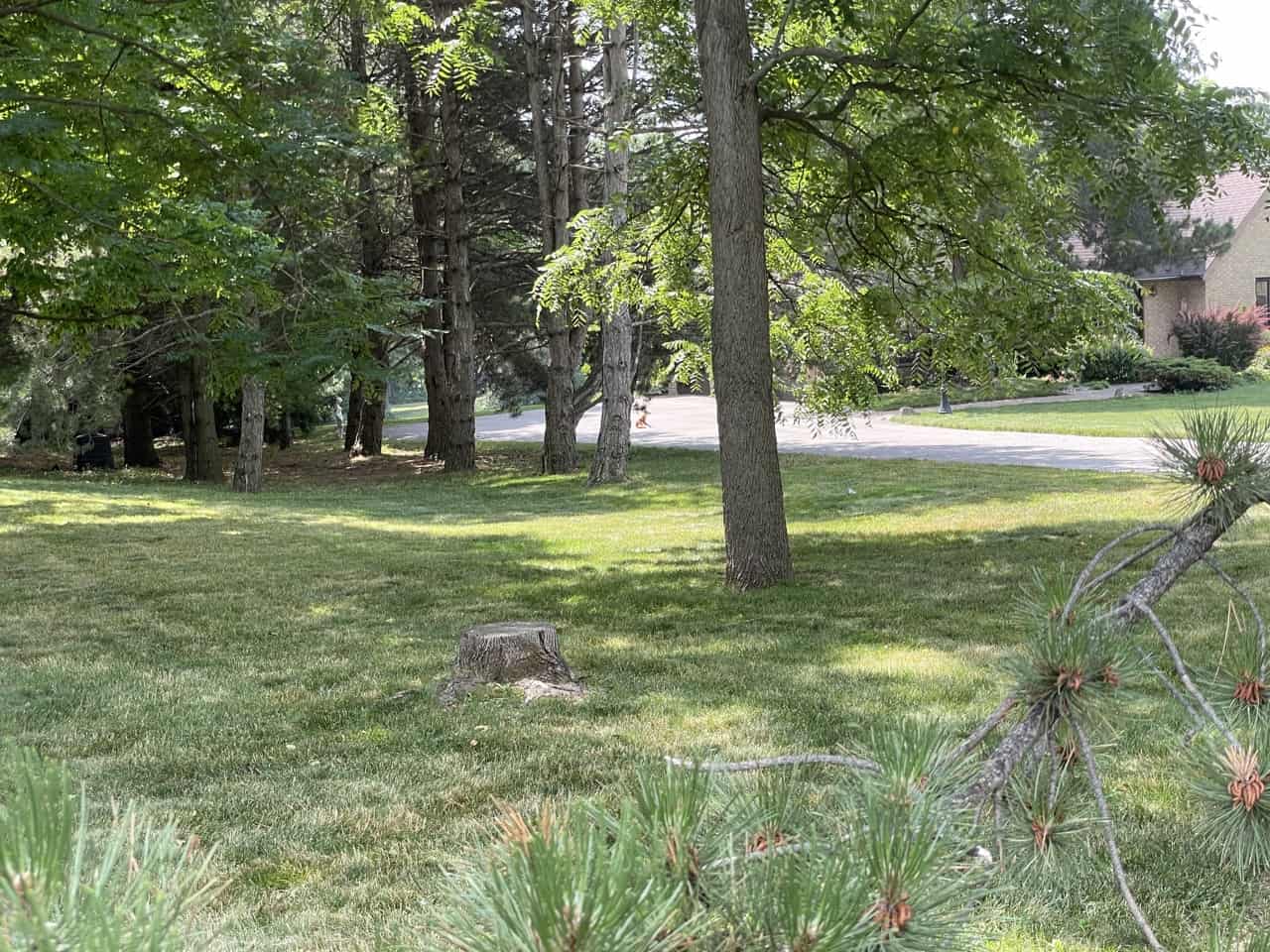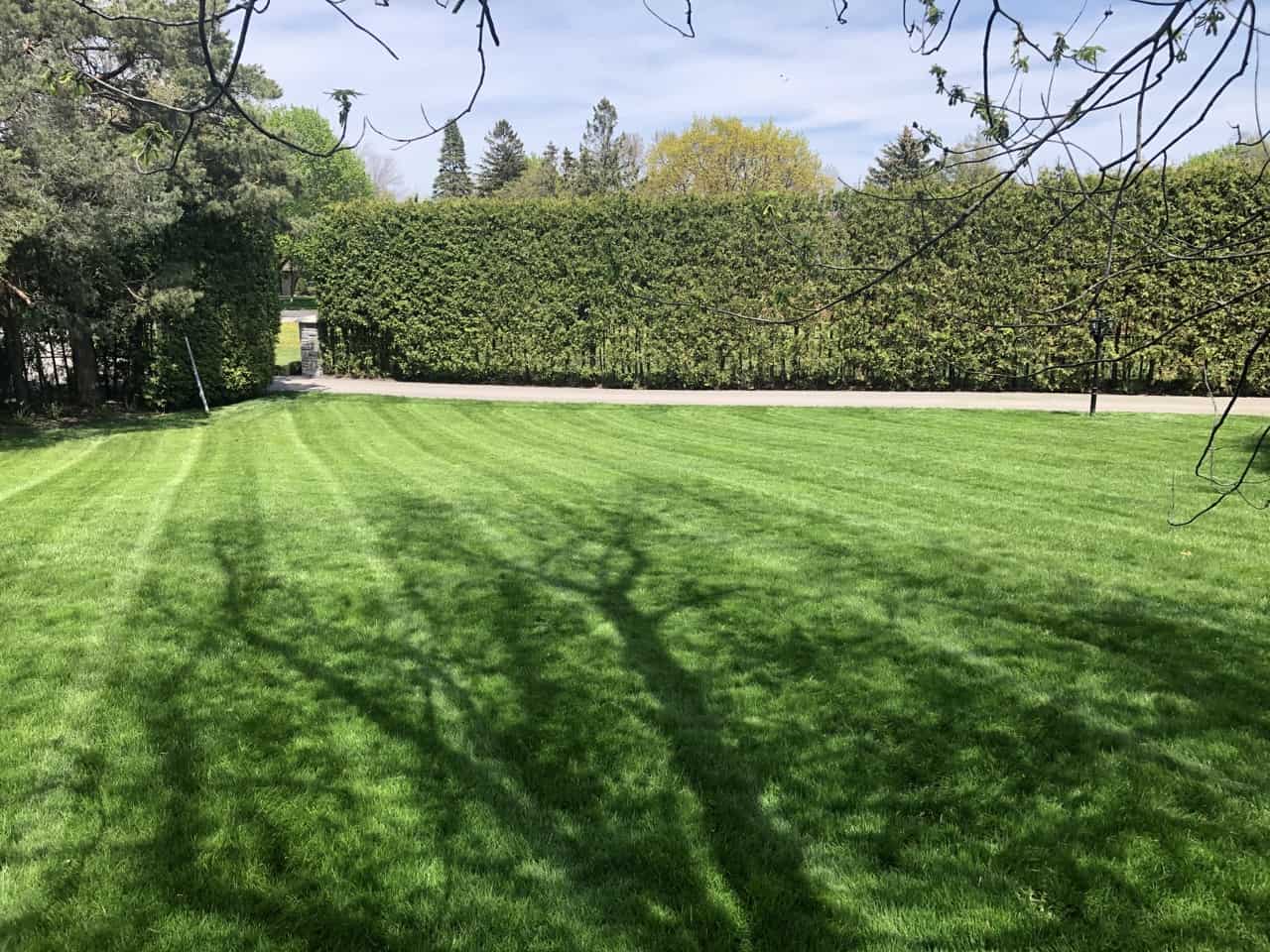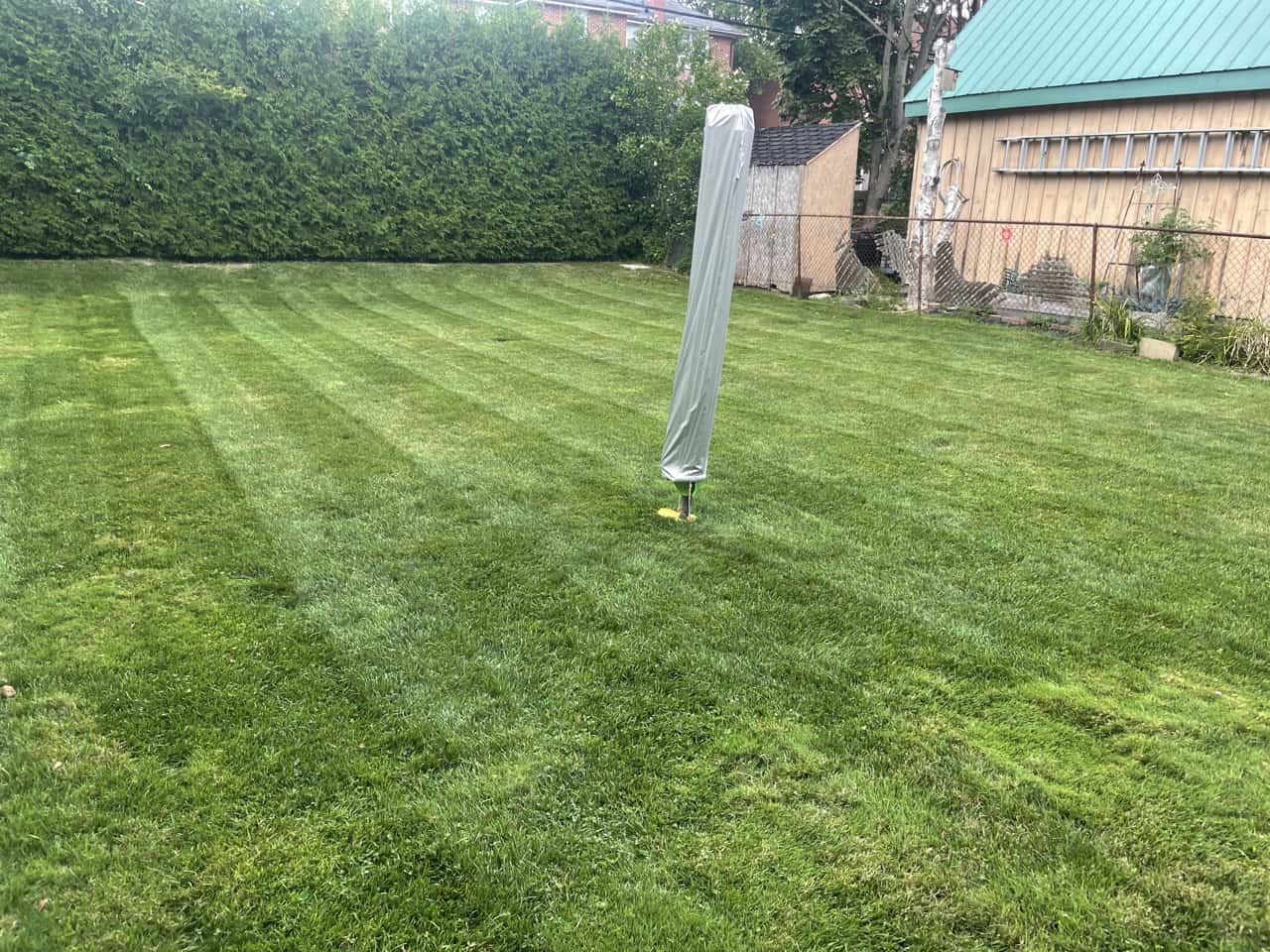Fertilization Myths Debunked
Call Now
Fertilization Myth #1: Fertilizer is plant food
 Wrong! Plants make their own food. Most people remember photosynthesis from grade school, right? Either way, plants take water and minerals from the ground through their roots, absorbing a gas called carbon dioxide. They convert these things into food by using energy from the sun. While fertilizer is nice to have for a plant, it’s not their “food”; it’s part of their food to help them grow.
Fertilizer is for the soil. It enhances the soil to ensure the plant has a nice place to grow and healthier minerals to intake to convert into food. This is why it’s important that the fertilizer is mixed properly into the soil and not just thrown on top. Or even thrown on top of the plant.
Fertilization Myth #2: All fertilizers are the same
Again, incorrect.
Knowing that plants make their own food, each plant differs in what minerals and how much of that mineral they need to make their own food. Most fertilizers contain nitrogen (N), phosphorus (P), and potassium (K). Fertilizers should be based on the ratios of these nutrients.
For example, if you live in an area where the soil contains a lot of phosphorus and potassium, you only need to buy a fertilizer with nitrogen. If your plant doesn’t handle prosperity well, you buy fertilizer with only nitrogen and potassium.
To buy the right fertilizer, you need to know two things: 1) know what’s in your soil with a soil test kit, and 2) know your plant. Knowing these two things, you should be able to decide which fertilizer is right for your lawn, garden, and even house plants.
Fertilization Myth #3: You don’t need fertilizer
Wrong! Plants make their own food. Most people remember photosynthesis from grade school, right? Either way, plants take water and minerals from the ground through their roots, absorbing a gas called carbon dioxide. They convert these things into food by using energy from the sun. While fertilizer is nice to have for a plant, it’s not their “food”; it’s part of their food to help them grow.
Fertilizer is for the soil. It enhances the soil to ensure the plant has a nice place to grow and healthier minerals to intake to convert into food. This is why it’s important that the fertilizer is mixed properly into the soil and not just thrown on top. Or even thrown on top of the plant.
Fertilization Myth #2: All fertilizers are the same
Again, incorrect.
Knowing that plants make their own food, each plant differs in what minerals and how much of that mineral they need to make their own food. Most fertilizers contain nitrogen (N), phosphorus (P), and potassium (K). Fertilizers should be based on the ratios of these nutrients.
For example, if you live in an area where the soil contains a lot of phosphorus and potassium, you only need to buy a fertilizer with nitrogen. If your plant doesn’t handle prosperity well, you buy fertilizer with only nitrogen and potassium.
To buy the right fertilizer, you need to know two things: 1) know what’s in your soil with a soil test kit, and 2) know your plant. Knowing these two things, you should be able to decide which fertilizer is right for your lawn, garden, and even house plants.
Fertilization Myth #3: You don’t need fertilizer
 Maybe.
Fertilizer isn’t food for plants but helps plants grow stronger and more vibrant. However, if your soil is already in perfect condition for your plants, you don’t need it. This is really the case, especially considering how many non-native plants have made it across borders and into homes.
Fertilizer helps the plant like you taking a multivitamin. You get most of your nutrients from the meals you make, but sometimes you miss some vitamins. For example, most vegetarians are vitamin B12 deficient, so they need to take B12 vitamins. People with poor diets normally have an iron and calcium deficiency, so they must take iron and calcium supplements.
Fertilization Myth #4: Organic is better
Not necessarily.
Again, it depends on the needs of your soil and plants. Organic fertilizers dissolve more slowly and are broken down by bacteria in the soil. This provides the soil nutrients as it decomposes and therefore helps the overall structure of the soil and enhances its own microbiome within the soil. Organic nutrients are great for the beginning gardener because it’s difficult to put too much and often breaks down fertilizer to its needs.
Synthetic fertilizer is faster-acting and is water soluble. Synthetic fertilizer is a great option if your plant or lawn is dying fast and you need something to help it out quickly. You also have many choices of different percentages with synthetic fertilizers, making it more individual to your soil and plant needs.
Fertilization Myth #5: More is better
Maybe.
Fertilizer isn’t food for plants but helps plants grow stronger and more vibrant. However, if your soil is already in perfect condition for your plants, you don’t need it. This is really the case, especially considering how many non-native plants have made it across borders and into homes.
Fertilizer helps the plant like you taking a multivitamin. You get most of your nutrients from the meals you make, but sometimes you miss some vitamins. For example, most vegetarians are vitamin B12 deficient, so they need to take B12 vitamins. People with poor diets normally have an iron and calcium deficiency, so they must take iron and calcium supplements.
Fertilization Myth #4: Organic is better
Not necessarily.
Again, it depends on the needs of your soil and plants. Organic fertilizers dissolve more slowly and are broken down by bacteria in the soil. This provides the soil nutrients as it decomposes and therefore helps the overall structure of the soil and enhances its own microbiome within the soil. Organic nutrients are great for the beginning gardener because it’s difficult to put too much and often breaks down fertilizer to its needs.
Synthetic fertilizer is faster-acting and is water soluble. Synthetic fertilizer is a great option if your plant or lawn is dying fast and you need something to help it out quickly. You also have many choices of different percentages with synthetic fertilizers, making it more individual to your soil and plant needs.
Fertilization Myth #5: More is better
 Totally wrong!
If using synthetic fertilizer, you can actually “burn” your lawn and wilt your plants. When providing too much fertilizer, your plant can’t take up enough water because there are too many solids (fertilizers) in the water so the plant can suck it properly. If the water can’t easily move up the stem of the plant, it goes back and pools around the roots. This causes root rot and therefore causes your plants to look burned, creating a bigger problem to try to salvage the plant.
Also, too much fertilizer is bad for the environment. Too much fertilizer can drain into our waterways, like groundwater, rivers, and oceans. This is especially problematic if the fertilizer has too much nitrogen, as it’s bad for our water system and ourselves.
Having houseplants and a beautiful yard is a beautiful thing. And it doesn’t have to be terribly complicated to achieve happy plants and lush, green grass. The more knowledge you have about your landscape, the better it is for your home and the overall environment. But if all this is just too much for you to take on yourself, you can always hire a professional. They’ll ensure that your grass, plants, and flowers all have the right nutrients and thrive.
Totally wrong!
If using synthetic fertilizer, you can actually “burn” your lawn and wilt your plants. When providing too much fertilizer, your plant can’t take up enough water because there are too many solids (fertilizers) in the water so the plant can suck it properly. If the water can’t easily move up the stem of the plant, it goes back and pools around the roots. This causes root rot and therefore causes your plants to look burned, creating a bigger problem to try to salvage the plant.
Also, too much fertilizer is bad for the environment. Too much fertilizer can drain into our waterways, like groundwater, rivers, and oceans. This is especially problematic if the fertilizer has too much nitrogen, as it’s bad for our water system and ourselves.
Having houseplants and a beautiful yard is a beautiful thing. And it doesn’t have to be terribly complicated to achieve happy plants and lush, green grass. The more knowledge you have about your landscape, the better it is for your home and the overall environment. But if all this is just too much for you to take on yourself, you can always hire a professional. They’ll ensure that your grass, plants, and flowers all have the right nutrients and thrive.

Aaron grew up in Bowmanville, working along side his dad for as long as he can remember. Aaron went to school to get his small engine repairs certificate to help keep all the machines running well. Aaron is very knowledgeable with all lawn care needs. He took and passed the pesticide license course so he could better help his customers. Aaron always makes sure to determine what your lawn needs and can give recommendations on how to make it better.
Mr. Trim has many awards from, three best rated, This Week Readers Choice, Durham Region Readers Choice and more. Both owners Lisa & Aaron have their pesticide licences. Their biggest accomplishment of all is having loyal customers that trust them year after year for all their lawn, garden and snow clearing needs.
